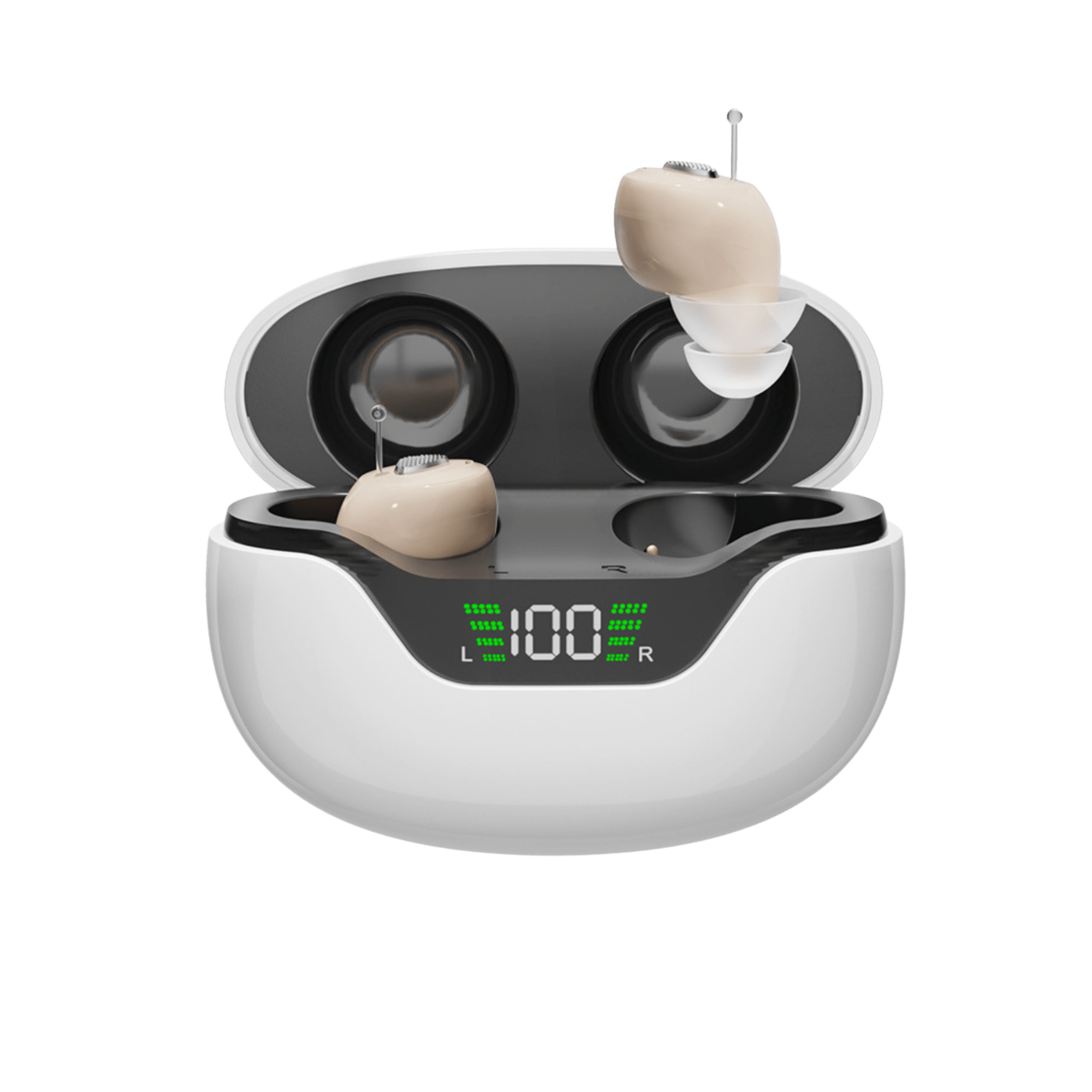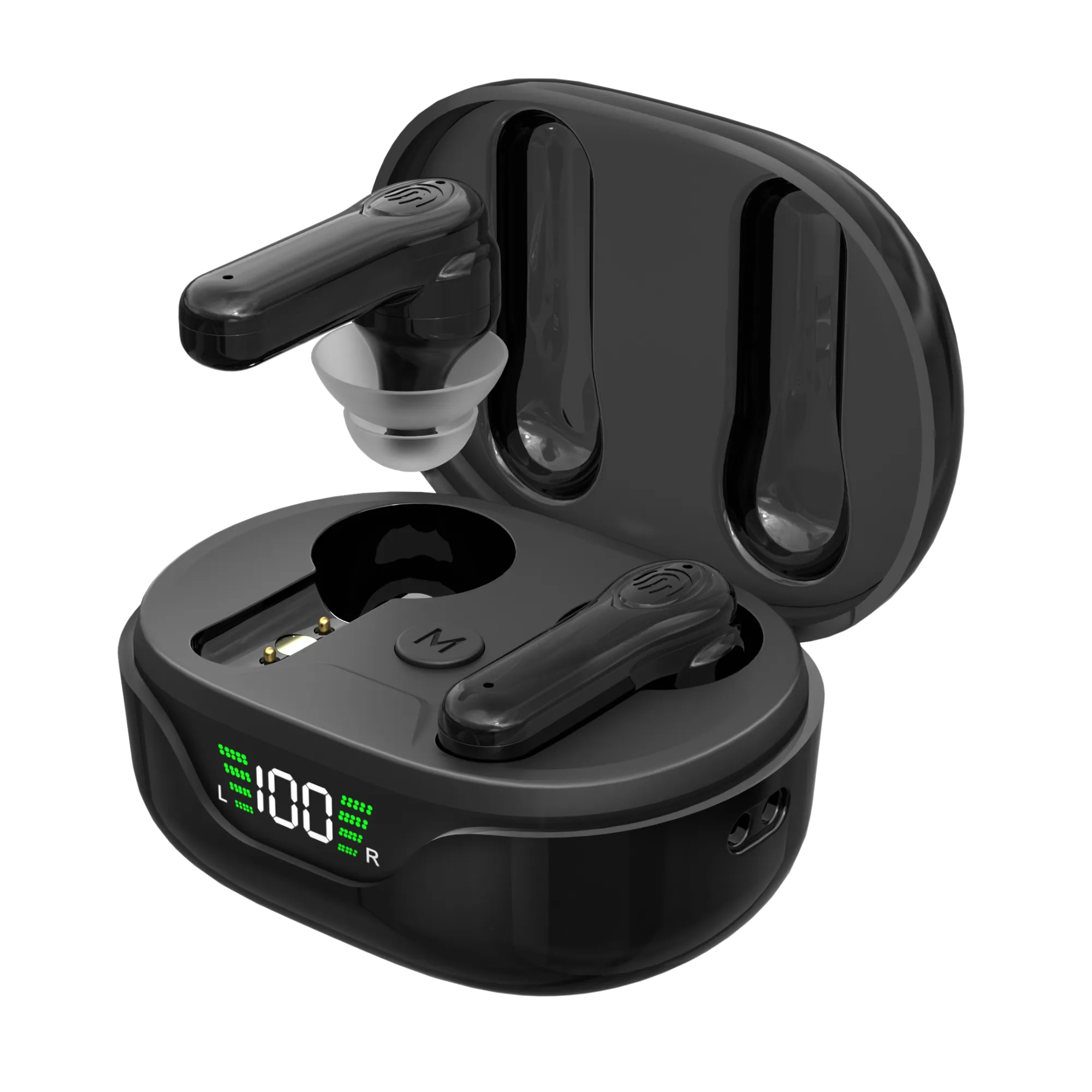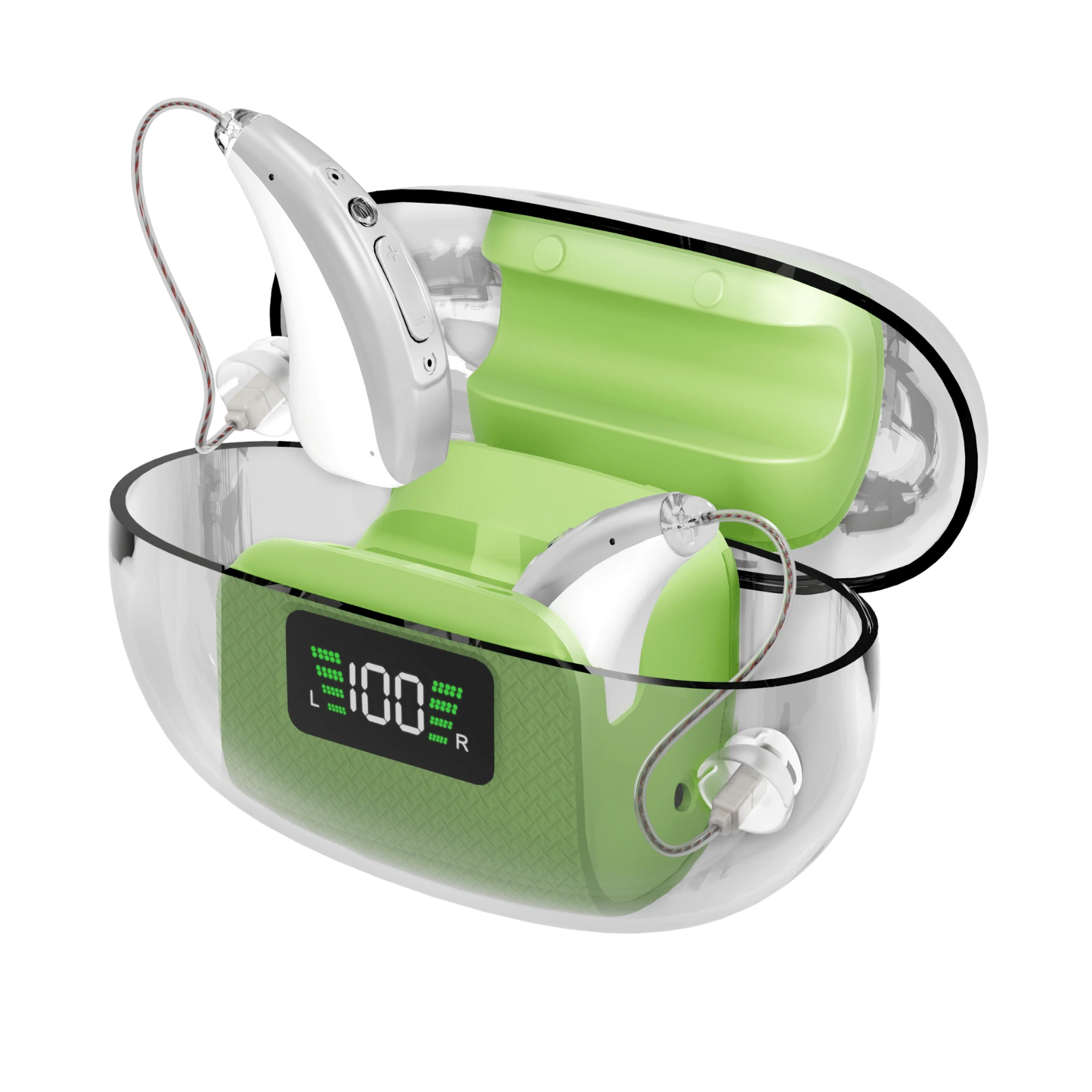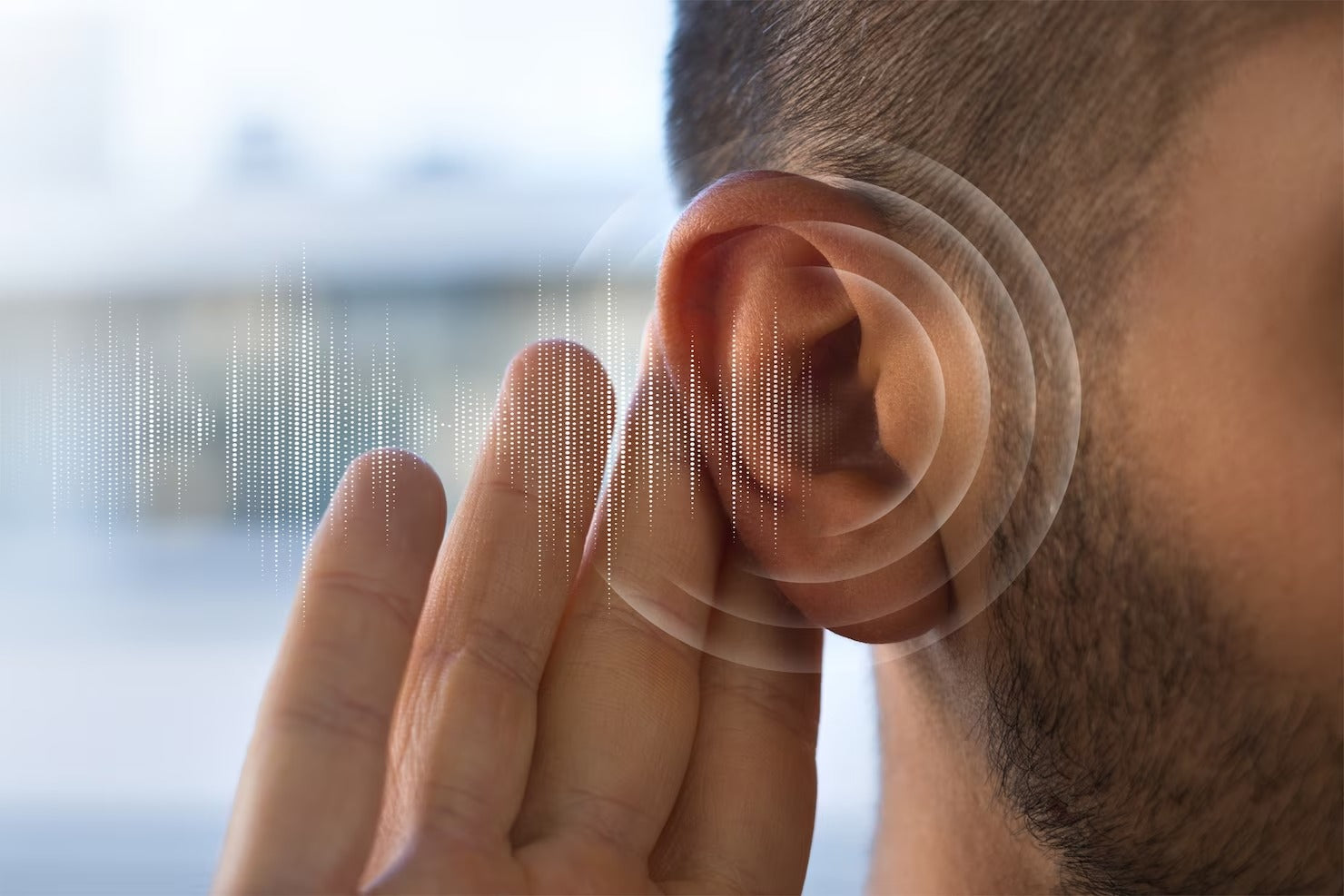A growing number of people are beginning to recognize the significance of hearing to the health and happiness of their entire bodies. Hearing aids are becoming increasingly important as the prevalence of hearing loss increases all over the world. Their relevance has never been greater. As you make your way through the world of hearing healthcare, you could discover that you have a number of questions, including the following: Hearing aids are something I'd want to discuss with my audiologist. Could they provide a solution for the long run? Will they assist alleviate the symptoms of ear-related disorders, boost my capacity to localize sounds, and/or improve my well-being as a whole? This essay will explore into these important questions and provide insights that may prove helpful to you on your road towards greater auditory health.
Recommendations from Audiologists and the Use of Hearing Aids
Audiologists and hearing experts are the people that are at the forefront of the field when it comes to diagnosing and treating hearing loss. In the event that you are having trouble hearing, they will do a comprehensive hearing test on you, and after analyzing the findings, they may quite well suggest that you get hearing aids. The advice, on the other hand, will be contingent on the nature and degree of your hearing loss, the requirements of your lifestyle, and your own personal preferences. The objective is to develop an individualized treatment strategy that takes into account all of the specific aspects of your auditory difficulties.
Hearing Aids May Be the Answer in the Long Run
When contemplating the purchase of hearing aids, it is essential to keep in mind that these devices are not a treatment for the majority of forms of hearing loss. Instead, they are a useful therapy option that has been intended to help control the illness and greatly improve your hearing capabilities. In spite of the fact that some people could endure progressive hearing loss over time, necessitating them to make modifications to their hearing aids over time, hearing aids often operate as a dependable long-term solution, assisting folks in improving their hearing for years, or even decades.
Hearing aids as well as relief from conditions related to the ears
A primary function of hearing aids is to amplify sounds, which improves one's ability to communicate with others who have hearing loss. However, they also have the ability to alleviate specific symptoms that are associated with the ear. For instance, the majority of people who suffer from tinnitus, which is characterized by a continual ringing or buzzing in the ears, discover that using hearing aids alleviates the symptoms of their illness. The tinnitus may be less evident as a result of the increased background noise given by the aids, which can help conceal the sensation.
It is essential to keep in mind that the degree to which hearing aids are able to alleviate the symptoms of a variety of illnesses associated with the ear varies greatly from person to person. As a result, it is essential to have a conversation with your hearing healthcare practitioner about your symptoms in order to formulate an all-encompassing treatment approach.
Identification of Specific Locations Utilizing Hearing Aids
Individuals who have hearing loss frequently struggle with "sound localization," which means they have trouble determining the direction from which a sound is emanating. This problem can pose safety hazards and make routine circumstances, like as having a discussion with a gathering of people, more difficult.
Hearing aids of today can make a substantial difference in one's ability to locate the source of sounds. They are able to accomplish this by offering balanced hearing in both ears and employing technology that analyses spatial information, which assists the brain in identifying the source of the sound being heard. Therefore, if you select the appropriate hearing aids and have them professionally fitted, you may anticipate greater sound localisation, which will contribute to an overall improvement in your hearing experience.
The Influence That Hearing Aids Have on One's Overall Sense of Well-Being
It is indisputable that the use of hearing aids may significantly enhance one's capacity for communication; nevertheless, the advantages of using them go much beyond an increase in one's capacity to hear. Numerous research point to a beneficial connection between the utilization of hearing aids and improvements in one's overall sense of well-being.
To begin, having better hearing typically results in easier conversation, which in turn leads to enhanced personal connections and higher levels of participation in social activities. As the capacity to communicate well is a fundamental component of one's level of autonomy, having this skill is also related with better levels of self-esteem and independence.
In addition, the usage of hearing aids may have positive effects on one's cognitive abilities. According to the findings of certain studies, untreated hearing loss may pose a risk for cognitive impairment. This may be because the amount of auditory input that the brain receives may diminish. Hearing aids, by virtue of their ability to enhance sounds, can supply the brain with additional auditory information, so potentially lowering this risk.
Finally, those who have hearing loss are more likely to have greater rates of anxiety, sadness, and social isolation than the general population. Hearing aids are able to assist ease these concerns by enhancing a person's hearing capabilities, which in turn contributes to improved mental health and quality of life.
In conclusion, based on the results of your hearing test, an audiologist or hearing expert may suggest that you purchase hearing aids. These aids can be used as a long-term solution to manage hearing loss, give comfort from specific disorders associated to the ear, and boost your ability to localize sounds in the environment. Furthermore, the advantages of hearing aids extend beyond the world of auditory perception, adding to an individual's general well-being. This highlights the unquestionable relevance of addressing hearing health issues. Always keep in mind that dealing with hearing loss is an individual experience, and that maintaining an open line of communication with your hearing healthcare professional is essential to locating the option that will serve you best.
Recommendations from Audiologists and the Use of Hearing Aids
Audiologists and hearing experts are the people that are at the forefront of the field when it comes to diagnosing and treating hearing loss. In the event that you are having trouble hearing, they will do a comprehensive hearing test on you, and after analyzing the findings, they may quite well suggest that you get hearing aids. The advice, on the other hand, will be contingent on the nature and degree of your hearing loss, the requirements of your lifestyle, and your own personal preferences. The objective is to develop an individualized treatment strategy that takes into account all of the specific aspects of your auditory difficulties.
Hearing Aids May Be the Answer in the Long Run
When contemplating the purchase of hearing aids, it is essential to keep in mind that these devices are not a treatment for the majority of forms of hearing loss. Instead, they are a useful therapy option that has been intended to help control the illness and greatly improve your hearing capabilities. In spite of the fact that some people could endure progressive hearing loss over time, necessitating them to make modifications to their hearing aids over time, hearing aids often operate as a dependable long-term solution, assisting folks in improving their hearing for years, or even decades.
Hearing aids as well as relief from conditions related to the ears
A primary function of hearing aids is to amplify sounds, which improves one's ability to communicate with others who have hearing loss. However, they also have the ability to alleviate specific symptoms that are associated with the ear. For instance, the majority of people who suffer from tinnitus, which is characterized by a continual ringing or buzzing in the ears, discover that using hearing aids alleviates the symptoms of their illness. The tinnitus may be less evident as a result of the increased background noise given by the aids, which can help conceal the sensation.
It is essential to keep in mind that the degree to which hearing aids are able to alleviate the symptoms of a variety of illnesses associated with the ear varies greatly from person to person. As a result, it is essential to have a conversation with your hearing healthcare practitioner about your symptoms in order to formulate an all-encompassing treatment approach.
Identification of Specific Locations Utilizing Hearing Aids
Individuals who have hearing loss frequently struggle with "sound localization," which means they have trouble determining the direction from which a sound is emanating. This problem can pose safety hazards and make routine circumstances, like as having a discussion with a gathering of people, more difficult.
Hearing aids of today can make a substantial difference in one's ability to locate the source of sounds. They are able to accomplish this by offering balanced hearing in both ears and employing technology that analyses spatial information, which assists the brain in identifying the source of the sound being heard. Therefore, if you select the appropriate hearing aids and have them professionally fitted, you may anticipate greater sound localisation, which will contribute to an overall improvement in your hearing experience.
The Influence That Hearing Aids Have on One's Overall Sense of Well-Being
It is indisputable that the use of hearing aids may significantly enhance one's capacity for communication; nevertheless, the advantages of using them go much beyond an increase in one's capacity to hear. Numerous research point to a beneficial connection between the utilization of hearing aids and improvements in one's overall sense of well-being.
To begin, having better hearing typically results in easier conversation, which in turn leads to enhanced personal connections and higher levels of participation in social activities. As the capacity to communicate well is a fundamental component of one's level of autonomy, having this skill is also related with better levels of self-esteem and independence.
In addition, the usage of hearing aids may have positive effects on one's cognitive abilities. According to the findings of certain studies, untreated hearing loss may pose a risk for cognitive impairment. This may be because the amount of auditory input that the brain receives may diminish. Hearing aids, by virtue of their ability to enhance sounds, can supply the brain with additional auditory information, so potentially lowering this risk.
Finally, those who have hearing loss are more likely to have greater rates of anxiety, sadness, and social isolation than the general population. Hearing aids are able to assist ease these concerns by enhancing a person's hearing capabilities, which in turn contributes to improved mental health and quality of life.
In conclusion, based on the results of your hearing test, an audiologist or hearing expert may suggest that you purchase hearing aids. These aids can be used as a long-term solution to manage hearing loss, give comfort from specific disorders associated to the ear, and boost your ability to localize sounds in the environment. Furthermore, the advantages of hearing aids extend beyond the world of auditory perception, adding to an individual's general well-being. This highlights the unquestionable relevance of addressing hearing health issues. Always keep in mind that dealing with hearing loss is an individual experience, and that maintaining an open line of communication with your hearing healthcare professional is essential to locating the option that will serve you best.





